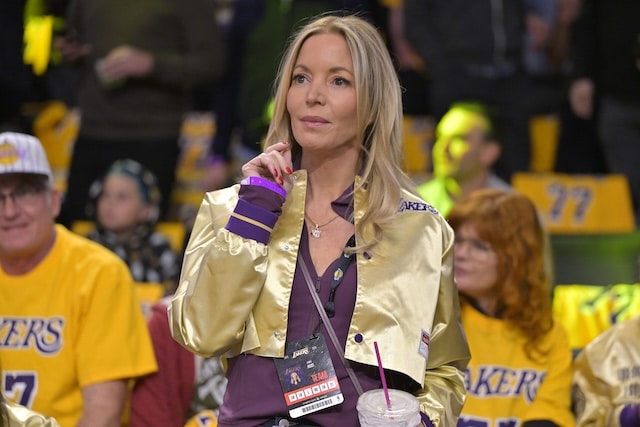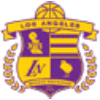The announcement that the Buss family is selling a majority stake in the Los Angeles Lakers at a staggering $10 billion valuation marks the end of an era for one of the NBA’s most storied franchises. With Mark Walter, CEO of TWG Global and current owner of the Los Angeles Dodgers, set to take over, sportsbooks and betting apps are already speculating that the Lakers’ championship odds will shorten in the coming years. The reasoning is simple: new ownership, especially one with deep pockets and a proven track record of success in professional sports, is expected to invest heavily in talent and infrastructure, potentially accelerating the team’s return to title contention.
Such investment could see the Lakers’ current championship odds—which, as of the 2025 offseason, hovered around +1400 to +1600—improve significantly, especially if Walter’s management style with the Dodgers—where he has shown a willingness to spend for winning—translates to the Lakers.
The excitement among fans and analysts is palpable. The Lakers have long been a marquee franchise, but under the Buss family’s stewardship, they have sometimes lagged behind smaller-market teams in basketball operations and talent investment. With Walter’s arrival, there is a sense that the Lakers could blend the ingenuity of a small-market team with the financial muscle of a big-market powerhouse. This could make the Lakers a more attractive bet for American sportsbooks, which often adjust their odds based not just on current rosters but also on ownership ambition and potential for roster upgrades. The presence of stars like LeBron James and Luka Dončić, who have demonstrated the ability to elevate the team’s performance, further bolsters the case for improved odds under new ownership.
The Buss Family Era: Foundations of Greatness
The Buss family’s journey with the Los Angeles Lakers began in 1979, when Dr. Jerry Buss acquired the franchise and the Los Angeles Kings and The Forum for $67.5 million. This purchase would be one of the most astute investments in sports history. Under Jerry Buss’s leadership, the Lakers became synonymous with glamour, success, and star power, quickly establishing themselves as the league’s premier franchise. The team won 11 NBA championships during the Buss family’s tenure, the most by any NBA team over that span. The Lakers also made 17 appearances in the NBA Finals, a testament to their sustained excellence.
The 1980s saw the rise of the “Showtime” Lakers, a dynasty led by Magic Johnson and Kareem Abdul-Jabbar, with coaching legend Pat Riley at the helm. This era was defined by fast-paced, entertaining basketball and five NBA titles in nine years. The Lakers returned to dominance in the early 2000s, winning three consecutive championships behind the dynamic duo of Shaquille O’Neal and Kobe Bryant, coached by Phil Jackson. These back-to-back dynasties solidified the Lakers’ reputation as a franchise built for greatness, attracting some of the biggest names in basketball history.
Transition and Transformation
Following Jerry Buss’s death in 2013, ownership of the Lakers passed to a trust controlled by his six children. Jeanie Buss, his daughter, emerged as the controlling owner after internal family disputes and legal challenges. She became one of the most influential women in sports, guiding the team through triumphs and tribulations. Under Jeanie’s leadership, the Lakers continued to prioritize star power, most notably signing LeBron James in 2018 and later acquiring Anthony Davis, which led to the franchise’s 17th championship in 2020.
However, the post-Kobe Bryant years were not without struggle. The Lakers experienced several lean seasons as they transitioned between eras, and at times, their front office and basketball operations lagged behind more innovative organizations. Despite these challenges, the Lakers remained a magnet for top talent, with LeBron James and, more recently, Luka Doncic joining the roster. The acquisition of Dončić in a blockbuster trade for Anthony Davis signaled the team’s continued commitment to competing at the highest level, even as the roster underwent significant changes.
The Current Roster and Star Power
The 2024-25 Lakers roster features a blend of veteran leadership and emerging talent. Now in his early 40s, LeBron James remains a force on the court, recently earning All-NBA Second Team honors and continuing to be a fan favorite. Luka Dončić, acquired in a mid-season trade, has quickly become a cornerstone of the franchise, bringing his elite scoring and playmaking abilities to Los Angeles. Other key contributors include Austin Reaves, Rui Hachimura, and Maxi Kleber, each playing essential roles in the team’s rotation. Bronny James, LeBron’s son, adds a layer of intrigue and continuity to the roster, even as he develops his game at the NBA level.
The Lakers’ depth chart reflects a team built to win now, with a mix of experienced players and promising young talent. Under Jeanie Buss’s guidance, the front office is willing to make bold moves, including the Dončić trade, to keep the team competitive. However, the limitations of the previous ownership structure—particularly in terms of financial flexibility and operational scale—have sometimes hindered the Lakers’ ability to keep pace with rivals. This is where the transition to new ownership is expected to make a significant difference.
The End of an Era: The $10 Billion Sale
The decision by the Buss siblings to sell a majority stake in the Lakers was not taken lightly. The family trust, which has controlled just over 60% of the franchise, will retain a minority share of around 15-18% after the sale, ensuring some continuity. Jeanie Buss will remain the team’s governor for the foreseeable future, a condition reportedly guaranteed as part of the agreement with Mark Walter. This arrangement reflects the family’s desire to protect the Lakers’ legacy and Walter’s respect for the franchise’s history.
The sale, valued at approximately $10 billion, sets a new benchmark for professional sports franchises in the United States. It surpasses the previous record set by the Boston Celtics’ recent sale and underscores the immense value of the Lakers’ brand. The transaction also reflects the NBA’s booming franchise valuations, driven in part by lucrative media rights deals and the league’s global popularity.
A New Chapter for the Lakers
Mark Walter’s acquisition of the Lakers is more than just a change in ownership; it signals a shift in the NBA’s ownership landscape. Walter, who already owns the Los Angeles Dodgers and is interested in other major sports organizations, brings a wealth of experience and resources. His track record with the Dodgers—where he has invested heavily in the team and its infrastructure—suggests that the Lakers could see similar levels of investment under his leadership.
The implications for the Lakers are profound. With new ownership comes the potential for increased spending on player salaries, front office personnel, and analytics. The team could become more aggressive in pursuing top talent through trades and free agency, and may modernize its approach to player development and scouting. This could make the Lakers an even more formidable force in the NBA, further enhancing their appeal to fans and bettors alike.
Looking Ahead: The Lakers in the Modern NBA
As the Lakers enter this new era, expectations will be higher than ever. The combination of star power—led by LeBron James and Luka Doncic—and Mark Walter’s financial backing positions the team for sustained success. Jeanie Buss’s presence as governor ensures that the franchise’s values and traditions will be preserved, even as the team embraces change.
The NBA’s landscape is evolving, with new owners bringing fresh ideas and ambitious plans. The Lakers, with their rich history and global brand, are well-positioned to thrive in this environment. The $10 billion sale is not just a landmark transaction but a statement of intent, signaling that the Lakers are ready to reclaim their place at the pinnacle of professional basketball.
The Los Angeles Lakers’ story is one of resilience, innovation, and excellence. From Jerry Buss’s vision to Jeanie Buss’s leadership and now Mark Walter’s ambition, the franchise has always found a way to adapt and succeed. As the Lakers prepare for their next chapter, the world will watch how this legendary team writes the next page in its storied history.





